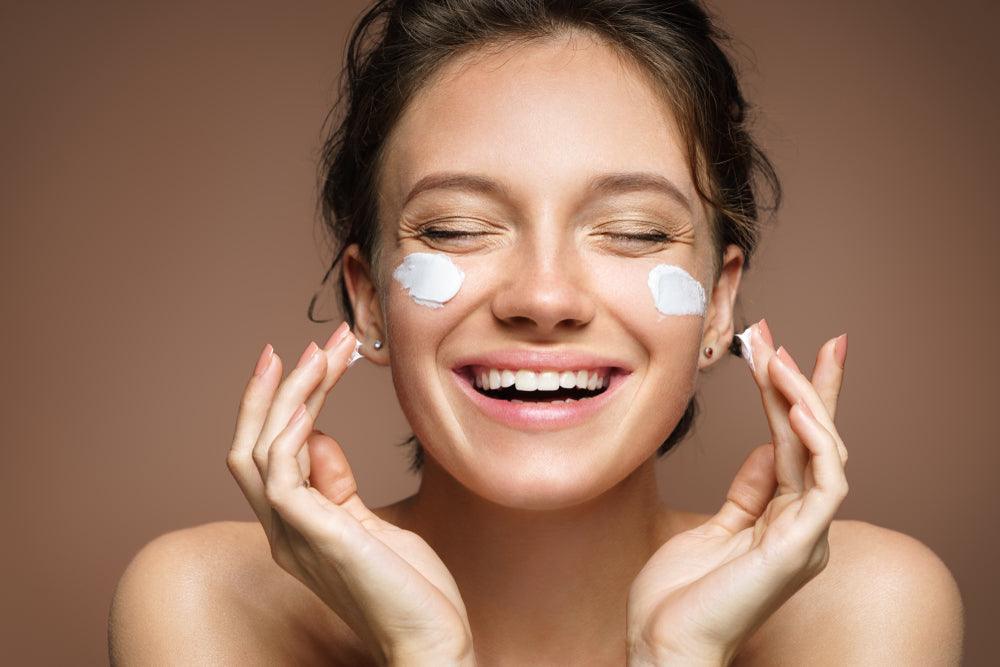Top 7 Anti-Aging Ingredients to Look For
Aging is a natural process, but with the right skincare strategy, it’s possible to age gracefully while maintaining firm, radiant, and youthful-looking skin. The key lies in choosing products that contain the most effective anti-aging ingredients.

Recent Blogs
- Top 10 Smart Home Devices to Upgrade Your Living Space in 2025
- Travel Smarter Choose Vacation Homes Over Hotels For Comfort
- How to Create a Smart Office at Home: Your Guide to Efficiency and Comfort
- How to Manage Oily Skin with the Right Products
- The Best Tech Luggage and Smart Suitcases for Modern Travelers in 2025
- How to Stay Fit While Traveling: Tips and Essentials
- Protein Powder for Beginners: Types and Benefits
September 25 02
Aging is a natural process, but with the right skincare strategy, it’s possible to age gracefully while maintaining firm, radiant, and youthful-looking skin. The key lies in choosing products that contain the most effective anti-aging ingredients. Whether you’re in your late twenties and looking to start prevention or in your forties and aiming to reduce signs of aging, the right ingredients can make a significant difference. Below are the top 7 anti-aging ingredients you should prioritize when selecting your skincare products.
1. Retinol (Vitamin A)
Retinol is one of the most well-researched and powerful anti-aging ingredients available. Derived from vitamin A, it works by speeding up cell turnover and stimulating collagen production, which helps to reduce fine lines and wrinkles.
How it works:
- Increases cell regeneration
- Boosts collagen and elastin synthesis
- Unclogs pores and improves skin texture
Benefits:
- Diminishes fine lines and deep wrinkles
- Improves skin tone and firmness
- Reduces dark spots and rough patches
Best for: All skin types except highly sensitive or rosacea-prone skin (start with a low concentration)
2. Hyaluronic Acid
One of the best hydrating ingredients for aging skin, hyaluronic acid is a naturally occurring molecule that can hold 1,000 times its weight in water. As skin ages, it loses moisture, which leads to sagging and dullness. This ingredient helps restore volume and plumpness.
How it works:
- Attracts and retains moisture
- Keeps skin hydrated and supple
- Fills out fine lines and creases temporarily
Benefits:
- Deep hydration for all skin types
- Smooths out texture and increases elasticity
- Improves the overall glow and bounce of the skin
Best for: All skin types, especially dry or dehydrated skin
3. Vitamin C (Ascorbic Acid)
Vitamin C is a potent antioxidant and a staple in any anti-aging skincare routine. It neutralizes free radicals caused by UV rays and pollution, both of which accelerate aging. It also helps fade pigmentation and promotes a brighter, more even skin tone.
How it works:
- Reduces oxidative stress
- Stimulates collagen production
- Inhibits melanin overproduction
Benefits:
- Brightens dull complexion
- Fades age spots and sun damage
- Reduces the appearance of fine lines
Best for: Normal, oily, and combination skin; use in the morning with sunscreen
4. Peptides
Peptides are short chains of amino acids that serve as building blocks of proteins like collagen and elastin. They are essential for maintaining a firm and youthful skin structure. As we age, peptide production slows down, which is why topical peptide application is beneficial.
How they work:
- Signal skin to produce more collagen
- Help rebuild and repair damaged skin
- Improve skin barrier function
Benefits:
- Firms sagging skin
- Reduces the depth of wrinkles
- Enhances skin resilience and texture
Best for: Mature skin needing firming and smoothing
5. Niacinamide (Vitamin B3)
Niacinamide is a multi-functional anti-aging skincare ingredient that supports the skin barrier, reduces inflammation, and improves elasticity. It’s particularly effective for addressing uneven tone and enlarged pores.
How it works:
- Strengthens the lipid barrier
- Minimizes redness and irritation
- Improves microcirculation in the skin
Benefits:
- Visibly reduces signs of aging
- Enhances skin smoothness and clarity
- Regulates oil production and fades discoloration
Best for: All skin types, especially sensitive or acne-prone skin
6. Alpha Hydroxy Acids (AHAs)
AHAs like glycolic acid and lactic acid are chemical exfoliants that remove dead skin cells, revealing fresher, smoother skin underneath. They also encourage collagen synthesis and improve moisture retention, making them ideal for anti-aging treatment.
How they work:
- Dissolve dead skin bonds
- Stimulate skin renewal
- Promote natural collagen production
Benefits:
- Smooths fine lines and rough patches
- Fades dark spots and acne scars
- Enhances the effectiveness of other skincare products
Best for: Dull, uneven, or sun-damaged skin; avoid daily use for sensitive skin
7. Ceramides
Ceramides are lipids (fats) that make up over 50% of the skin’s barrier. As we age, ceramide levels decrease, leading to dry and sensitive skin. Replenishing ceramides helps to restore the skin’s protective barrier and retain moisture.
How they work:
- Rebuild and reinforce the skin barrier
- Prevent moisture loss
- Protect against environmental damage
Benefits:
- Keeps skin soft, supple, and hydrated
- Reduces flakiness and irritation
- Helps maintain a youthful complexion
Best for: Dry, aging, or compromised skin
Final Thoughts
When it comes to building an effective anti-aging skincare routine, choosing the right ingredients is crucial. Whether you’re focusing on retinol, hyaluronic acid, or peptides, each one plays a unique role in preventing or reversing signs of aging. You don’t need every ingredient at once—instead, build a routine tailored to your skin type, concerns, and tolerance level. Look for trusted products that combine two or more of these top anti-aging ingredients for maximum impact, and remember: consistency is key.
Comment:
Your email address will not be published. Required fields are marked *
Our Top Picks
No products found.








